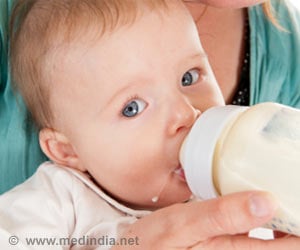‘BREASTFEEDING SUPPORT: CLOSE TO MOTHERS' has been selected as the theme for this year's World Breastfeeding Week (WBW).
This year, emphasis is being laid on the Breastfeeding Peer Counselling Program; it could be a cost effective and highly productive way to reach a larger number of mothers more frequently. A community support system for mothers is of great vitality especially during the period when mothers do not visit a healthcare facility. Owing to the increased global awareness of the benefits of breastfeeding, most mothers are able to get off to a good start, all too often in the weeks or months after delivery. But what has been observed immediately after this is a sharp decline in breastfeeding rates and practices. The increasing rate of urbanization and other social changes may be the reason for this.The following are the objectives of WBW 2013:
1. To draw attention to the importance of Peer Support in helping mothers to establish and sustain breastfeeding.
2. To inform people of the highly effective benefits of Peer Counselling, and unite efforts to expand peer counselling programmes.
3. To encourage breastfeeding supporters, regardless of their educational background, to step forward and be trained to support mothers and babies.
4. To identify local community support contacts for breastfeeding mothers, to whom women can go to for help and support after giving birth.
Reference: http://worldbreastfeedingweek.org/
WBW in 2008 had proposed ‘the five circles of support’ which have not lost their relevance even today:
1st to 7th August every year is celebrated as ‘World Breastfeeding Week’ in more than 120 countries. WBW was first observed in 1992 by World Alliance for Breastfeeding Action (WABA). It is currently organized by WABA, WHO and UNICEF. The prime goal of WBW is to re-establish a global breastfeeding culture and provide support for breastfeeding everywhere.
'Mothers are considered active participants in the support dynamic, being both providers and recipients of information and support'; women are hence placed in the centre. Support from family and social network ‘increases the mother's confidence in her ability to breastfeed beyond the early weeks and months’. This group involves husbands/partners/fathers, family and friends.
The role of health care systems range from mother-friendly prenatal care, supportive labour and delivery services to postpartum and postnatal care that facilitates bonding and optimal infant feeding. Trained health workers play key roles. Suitably modified workplace and environment facilitate mother-baby contact or expression and storage of breast milk. Government/legislation combats aggressive marketing of breast milk substitutes and enacts paid maternity leave.
Response to Crisis or Emergency represents ‘the need for support IF a woman finds herself in an unexpected and / or serious situation, with little control’.
Source-Medindia












